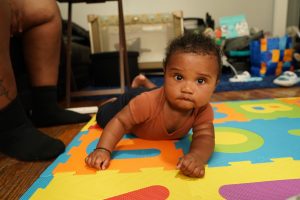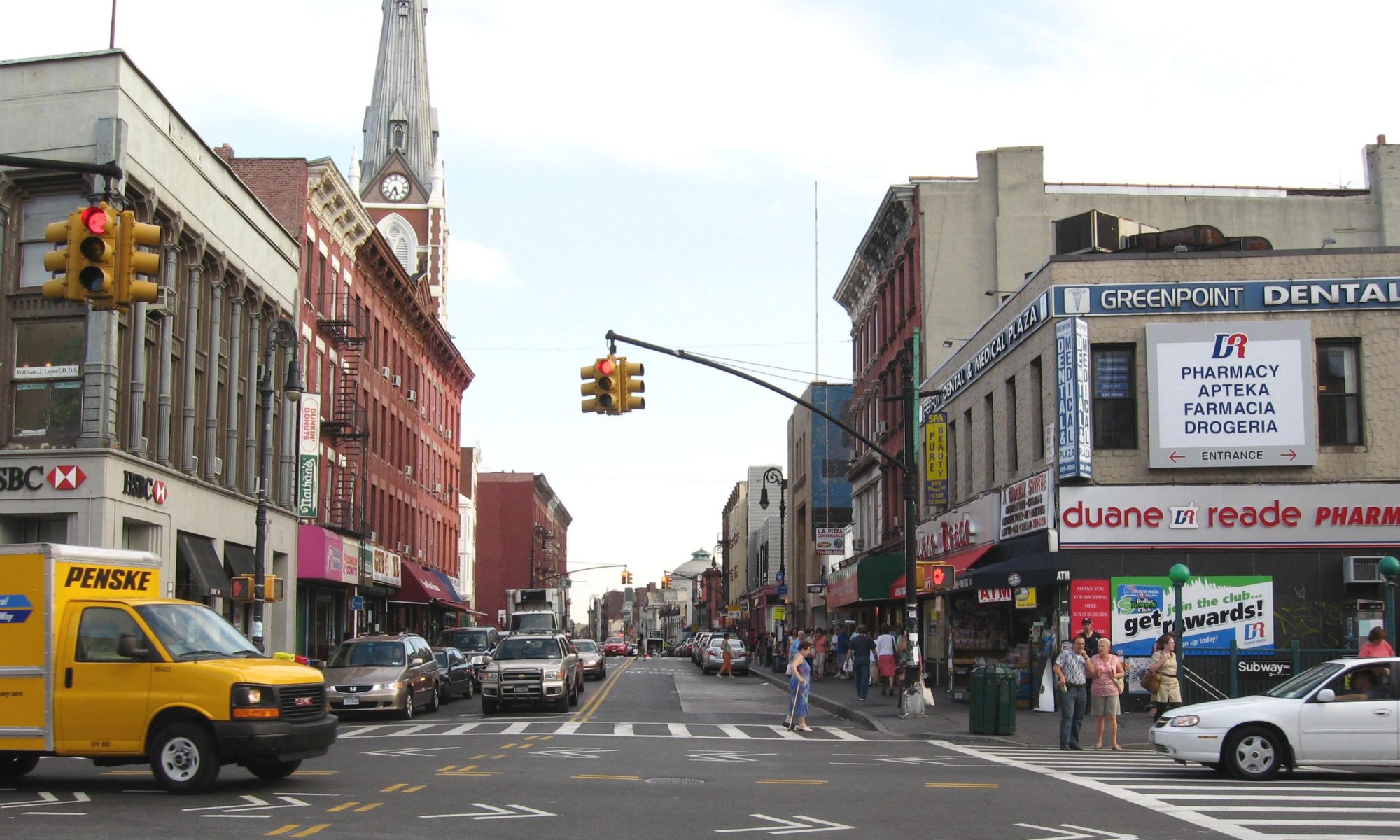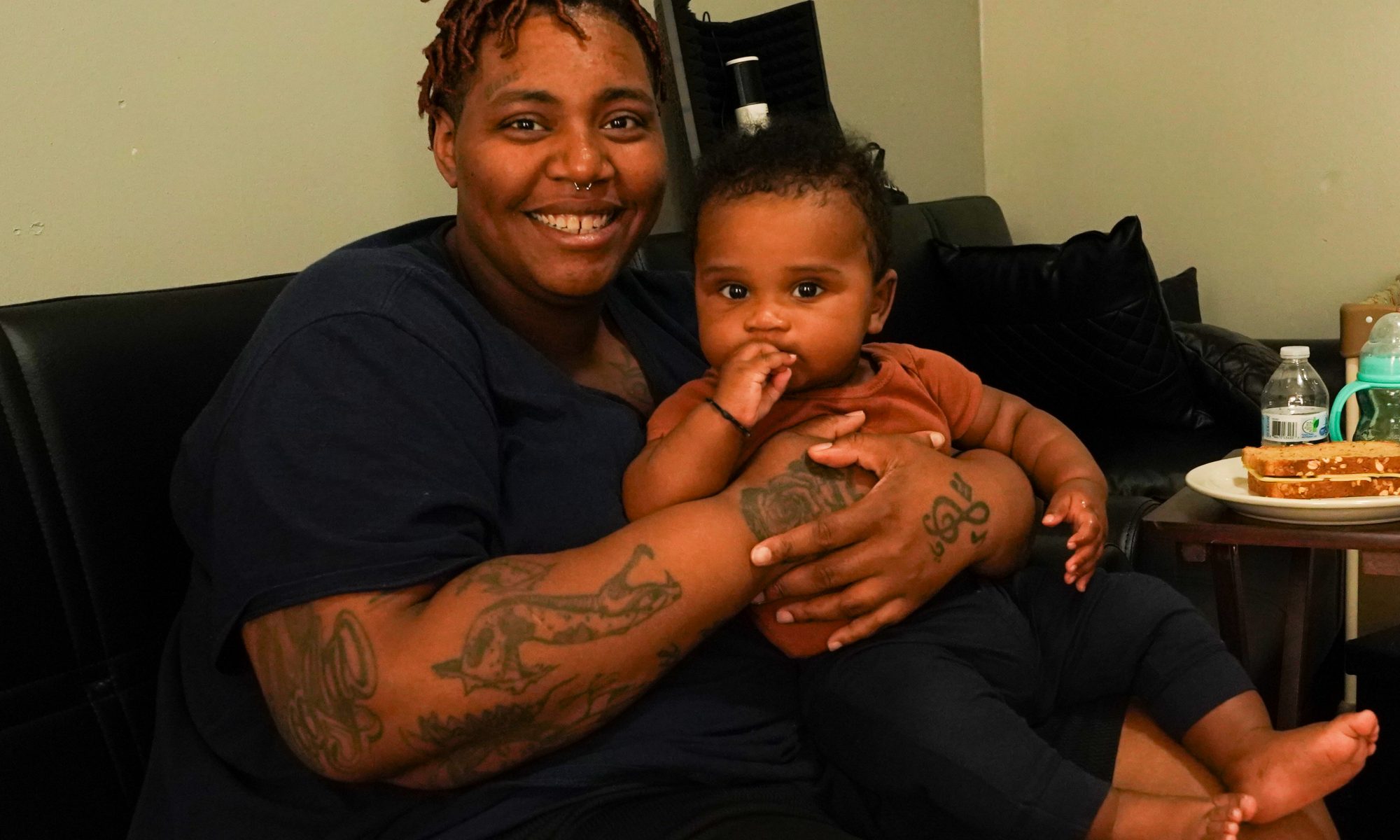By Jean Brannum | jbrannum@queensledger.com
Jenn Miles grew up in the foster care system. She aged out at the age of 21 after years of cycling in and out of the hospital and various foster homes since the age of two. Now, at 30, Miles holds her six-month-old son on her chest in her own apartment in Crown Heights. Her goal is to be a better mother than her own and raise her son to achieve anything.
“I’m in a better stage, a better mindset,” Miles said. “I’m a different and better person from where I was before.”
It hasn’t been easy for Miles. She’s had to learn how to work through anger management problems and depressive episodes. She is working to maintain her wellness, and her son, Lucas, motivates her to do so.
“Aging Out”
In the system, Miles explained that she felt like an item rather than a person. She said she was abused in one foster home, and the case manager did nothing to resolve the situation. Miles said case workers rarely believe children in abusive foster homes.
“When I see kids in the system, I see nothing but sadness and anger,” Miles said.
Miles carried some of the same sadness and learned to be independent at a young age, like many foster kids. She wanted to be a social worker but decided not to pursue the career knowing the realities of the system.
Miles met Sharon Sorrentino, vice president of Child, Family, and Young Adult Services at the Institute of Community Living, while staying at a hospital. She was put into another ICL house for young adults who aged out of the foster care system. The first crucial item Miles received was support.
The ICL is a network of housing that provides supportive care to New Yorkers with behavioral health challenges. The organization provides supportive housing, healthcare, and recovery services to those in need.
An Administration for Children’s Services report from 2022 says 17 percent of 3,020 children in foster care “age out,” meaning children reach the age of 21 without being adopted or reunited with their parents or guardians. Foster children can technically exit the system at 18, but Miles did not recommend doing that because she saw many people who aged out at 18 become homeless. For young adults who choose to remain in care until their 21st birthday, the ACS will help them find housing in NYCHA or Section Eight.

Finding Support
Miles was excited to find out she was pregnant, but her behavioral challenges put her at risk of losing custody of her child. She also lost her supportive housing due to her pregnancy. She entered the Emerson house, another ICL establishment, to receive housing, behavioral, and case management support.
Emerson caters to single parents who are at risk of losing custody of their children or working to reunite with children in foster care due to behavioral health problems. Sorrentino explained that ICL works with courts and parents to avoid involvement from Child Protective Services by giving parents the necessary resources to care for their children. For parents working to reunify with their children, Emerson staff will help them by ensuring parents attend court sessions and maintain regular visits. Parents will then receive assistance with reestablishing a bond with their children after reunification.
For parents to reunite with their children, family courts require the parents to provide a stable place for them. Most single parents who are homeless will only be eligible for single adult homes, which include living with roommates and do not allow children. A child can also be barred from visitation since the parent lives with other strangers due to safety concerns. This creates a barrier to reunification for many families and can cause familial bonds to diminish.
“Sometimes families who are in the homeless shelter find themselves kind of between a rock and a hard place if they’ve been separated from their children, because they may not qualify for family housing, which then prevents them from being able to reunify with their children,” Sorrentino said.
The ACS report says 54% of foster children in 2022 were reunited with their families. The first goal of foster care is reunification, but as Sorrentino explained, the process can be long and tedious. Miles said she worked hard through her problems to make sure she never lost Lucas to foster care because it would be very difficult to regain full custody.
Emerson helps Miles by providing household and childcare support as well. Miles rattled off names of people who will help her with laundry and cleaning, and look after Lucas when she is due in court. Miles disclosed an incident at her previous job that she regrets. She said continues finding positive ways to express and manage her emotions.
Emerson also offers parenting support and community events. Miles is, by admission, an introvert, but she sometimes attends these events where single parents can bond and receive peer support.
Looking Ahead
Lucas will soon start daycare, and Miles is working to maintain her wellness. She continues to go to therapy and is working on producing music. She wants to teach her son about managing emotions and encourage him to be successful in academics.
“I want him to be successful in life and know that he can do anything he wants to.”
Being a single mom can be difficult, but Miles said that her solution to some of the chaos is kids’ TV show personality, Ms. Rachel.
“I can actually take my shower, I can actually clean or cook,” Miles said. “Most of the time, he wants to be in my arms but once I (turn on Ms. Rachel), I’m invisible, so I work with that.”
Currently, Miles plans to stay at Emerson until she is ready to be independent and move into her own place outside of ICL.
The Emerson program is, unfortunately, one-of-a-kind in the US. There are no similar programs in New York or any other state. The ICL continues to advocate for greater flexibility in the shelter system that will allow single parents to receive housing vouchers in appropriate apartments for their children, including children that parents hope to reunite with.

